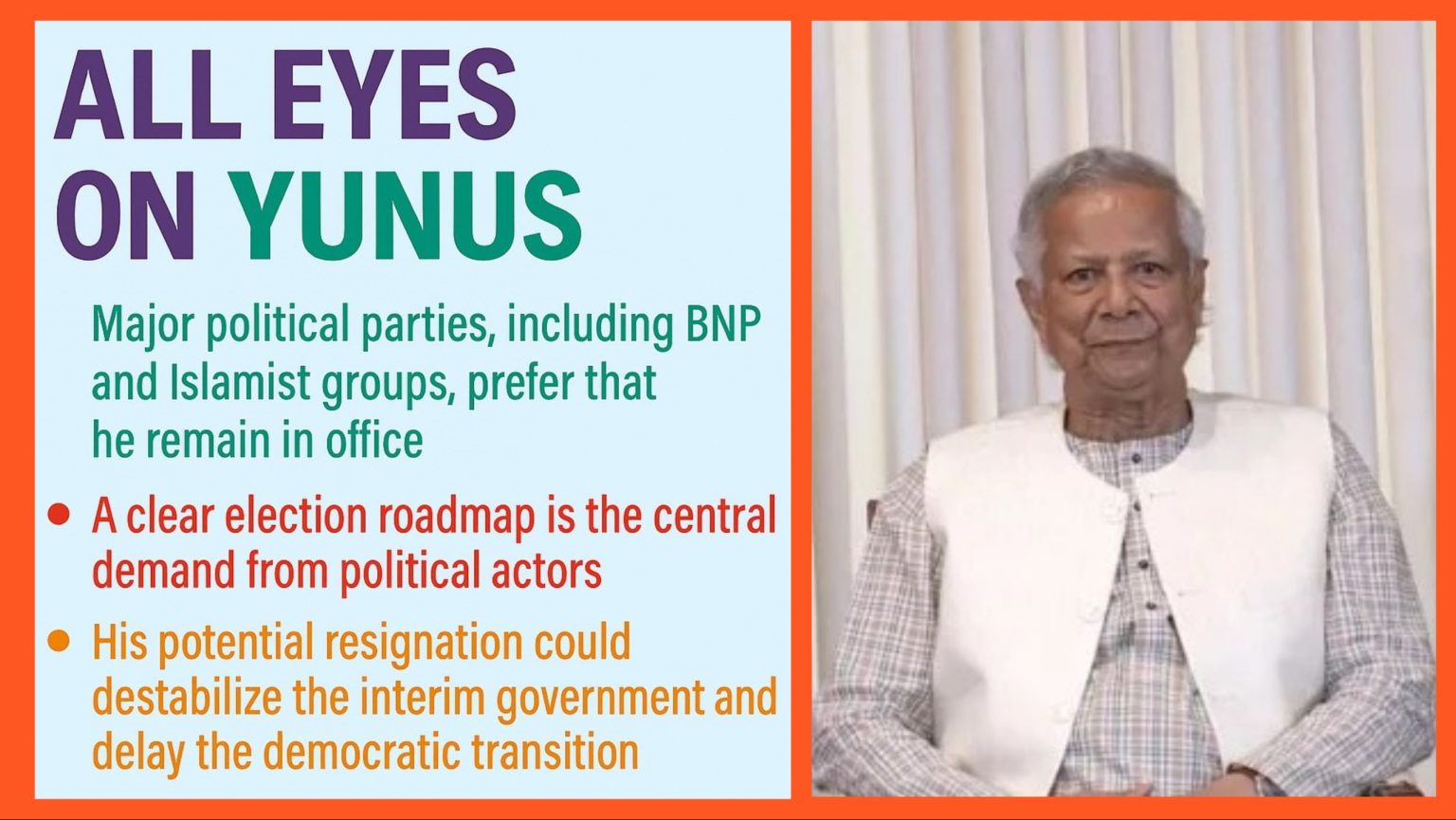The political landscape of Bangladesh is currently gripped by speculation, tension, and strategic manoeuvering following reports that the chief adviser to the interim government Muhammad Yunus is considering resignation.
Though still unofficial, his rumoured contemplation of stepping down has sparked nationwide debate and concern across the political spectrum.
A resignation that no one wants?
The most striking takeaway is the rare convergence among major political forces — none of them actually want Yunus to resign. Sources confirm that even opposition parties like the Bangladesh Nationalist Party (BNP) and Jamaat-e-Islami have privately and publicly expressed support for Yunus continuing in office.
Their reasoning is pragmatic: in the current volatile environment, Yunus represents a stabilising figure with broad public trust, both domestically and internationally. His abrupt departure could push the country into deeper uncertainty.
Despite this support, Yunus is reportedly disillusioned by systemic dysfunction, a lack of cooperation from political parties, and increasing street-level pressures.
He has cited challenges such as frequent protests, a lack of political consensus, and institutional resistance as contributing factors to his frustration.
Military signals and political interpretations
Yunus’s reported discontent came just one day after a speech by Army Chief General Waker-Uz-Zaman, in which the general emphasised the importance of holding elections by December and forming an elected government.
This has led some BNP insiders to speculate whether Yunus’s resignation talk is part of a strategic warning or a pressure tactic by the interim government.
This interpretation reflects the deeply mistrustful and tactical nature of Bangladeshi politics, where every move is read through layers of potential implication and intent.
Political outreach to prevent a crisis
In response to the rumours, political parties have scrambled into action. BNP, Jamaat, and other Islamist parties have sought immediate appointments with Yunus, aiming to persuade him to stay on and instead demand a clear electoral roadmap.
A broad political consensus is emerging — Yunus should remain, but he must swiftly announce a timetable for elections and initiate electoral and institutional reforms.
A unique aspect of this moment is the unusual cooperation among ideologically diverse Islamist parties like Jamaat-e-Islami, Islami Andolon, and Khilafat Majlis, all advocating for Yunus to stay in his role. They argue that his exit would leave a dangerous vacuum, one which the fragile system cannot currently withstand.
What’s next?
All eyes are now on the upcoming Executive Committee of the National Economic Council meeting, which Yunus will chair. Political analysists believe this will be a key indicator of whether he is willing to continue or move towards resignation. His tone, messaging, and public stance during the meeting may reveal more than any official statement.
In sum, Bangladesh stands at a political crossroads. The resignation of Yunus could plunge the country into a leadership vacuum at a crucial juncture.
But if he stays, the onus is on him to swiftly deliver the long-demanded election roadmap and initiate institutional reforms. For now, the pressure remains on all sides — and the nation watches with anxious anticipation.


